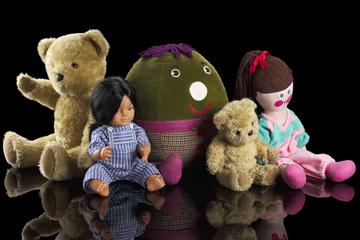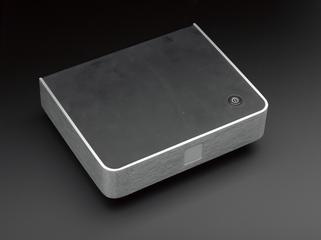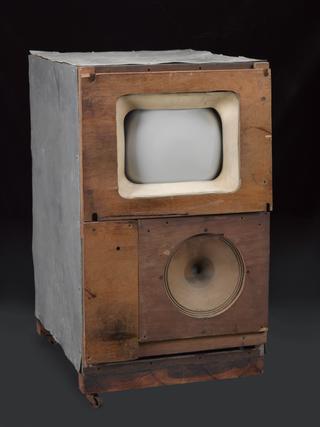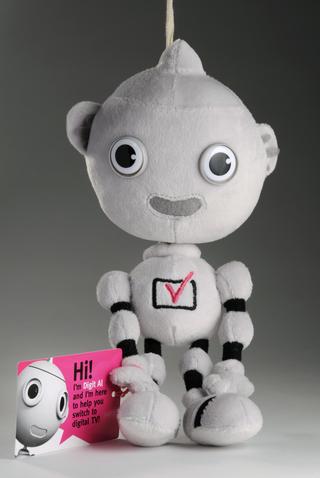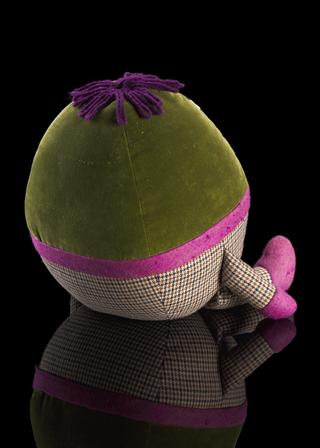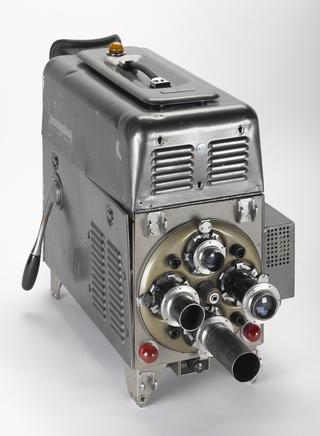
Wartime Civilian Radio Receiver
- Made:
- 1944 in United Kingdom
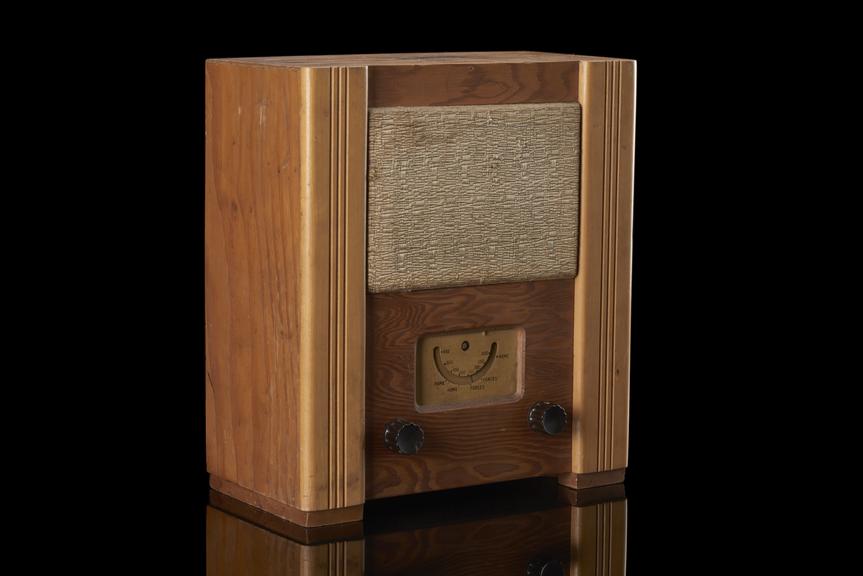
Wartime Civilian Receiver, 1944, also known as a "Utility Set". This is the mains operated version. The cabinet is made from solid pine. There is a note to say "produced by the radio industry under government direction", as well as "save power, switch off when not in use". The mains cord has been cut off.
The Wartime Civilian Receiver was made by a temporary wartime company consisting of 44 British manufacturers to a standard Government specified design (devised by D.G. Reynolds of Murphy Radio). They used spare components that were not needed for military use to create a radio available to the wider population, and this become known as the “utility set”.
The utility set made broadcast radio available to a wider public in the Second World War, and it is believed over 175,000 of these sets were created in the year that the group was active (1944-45).
The chassis was stamped with a code indicating the manufacturer to enable dealers and service engineers to obtain spares, but the sets were otherwise unbranded and the buying public were unaware of which manufacturer made a particular set. Valves were similarly labelled.
Details
- Category:
- Television
- Collection:
- BBC Heritage Collection
- Object Number:
- 2012-5118/831
- Materials:
- electronic components and pine (wood)
- Measurements:
-
overall: 330 mm x 310 mm x 190 mm, 7.5 kg
- type:
- radio receiver
